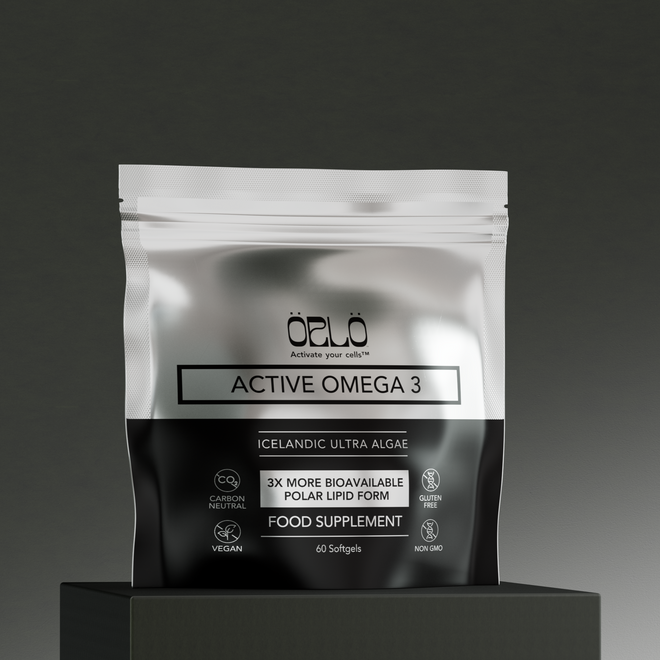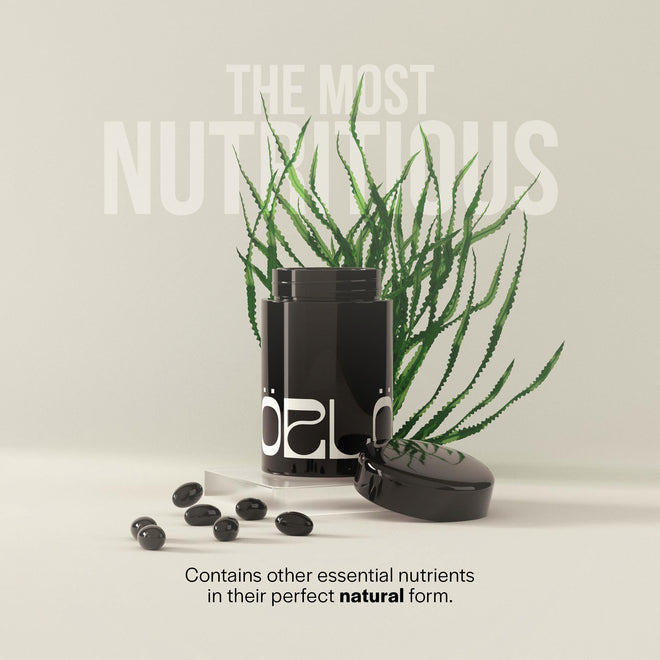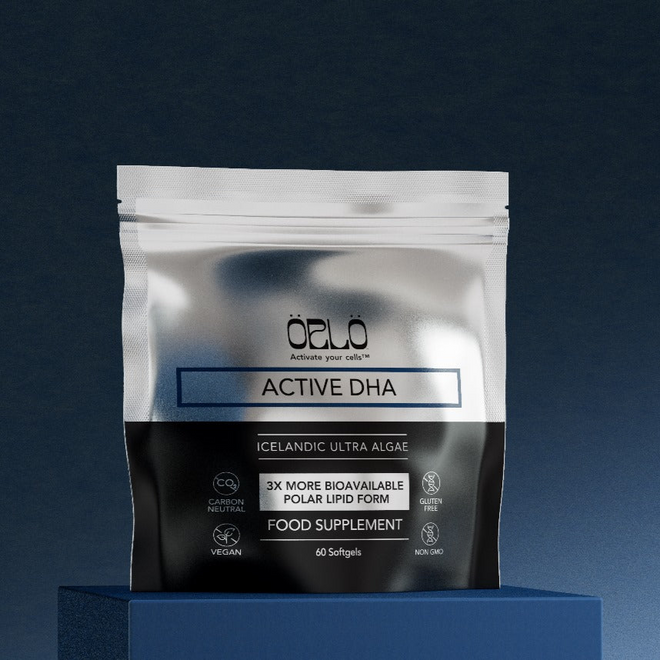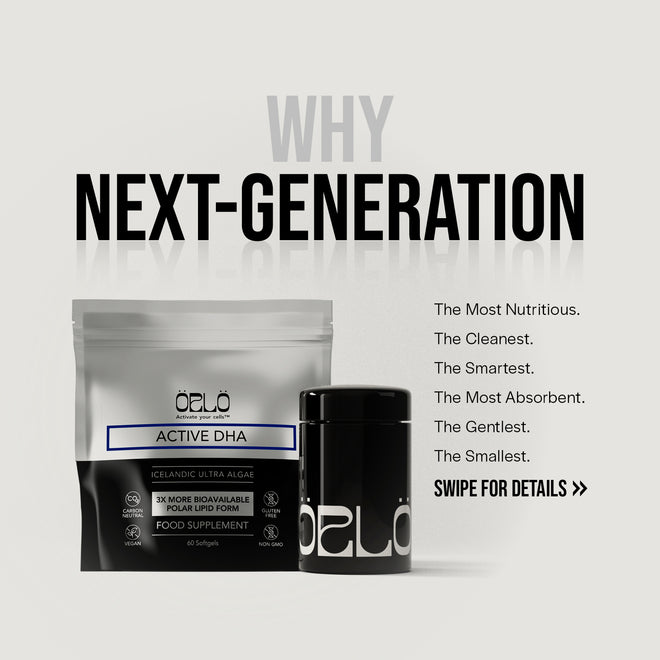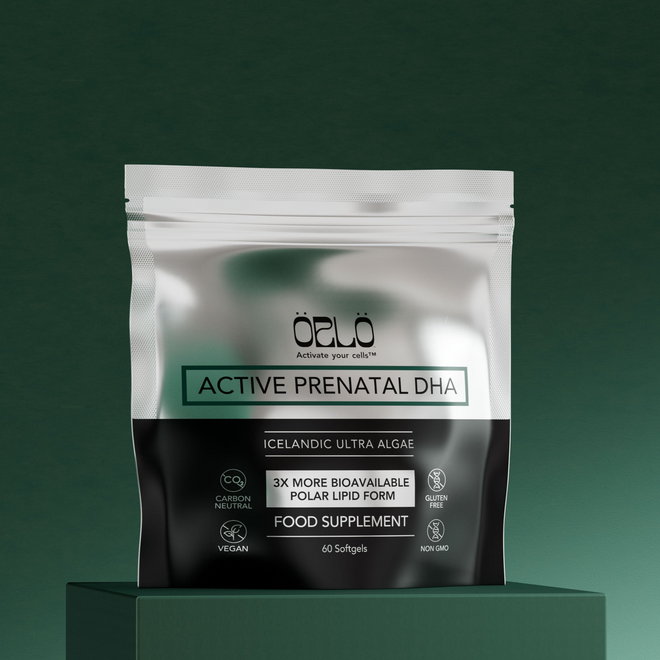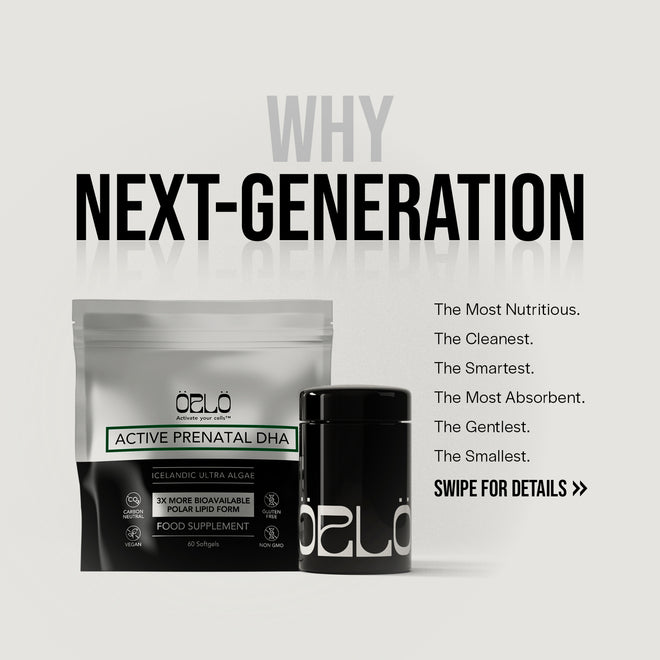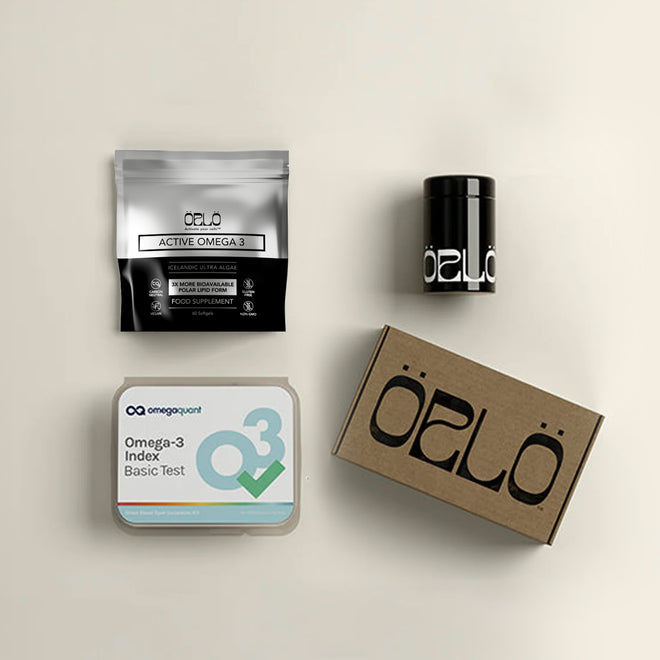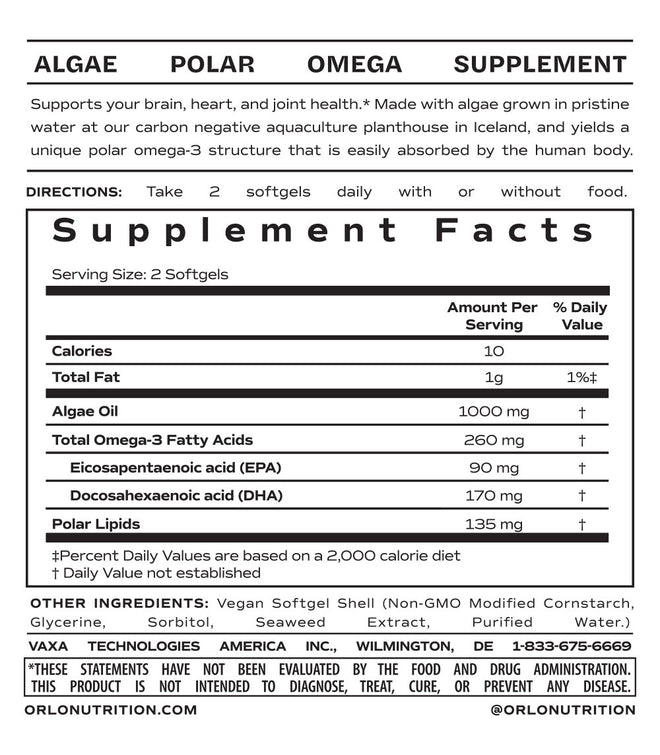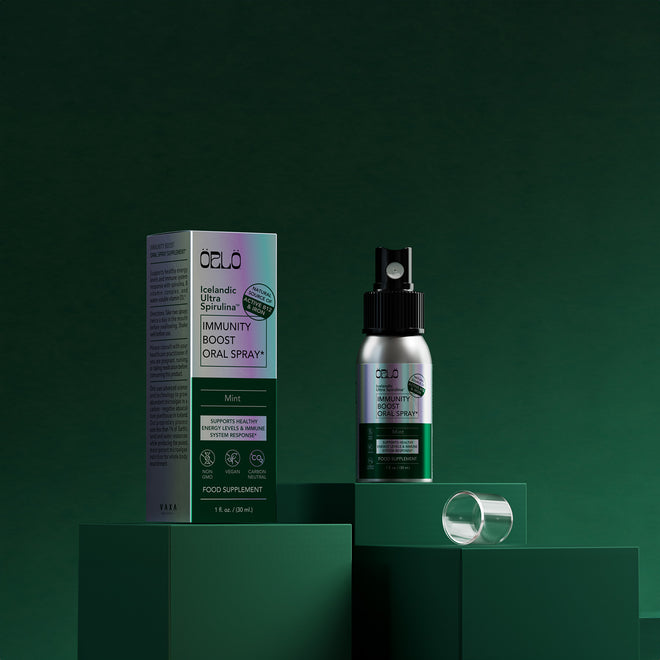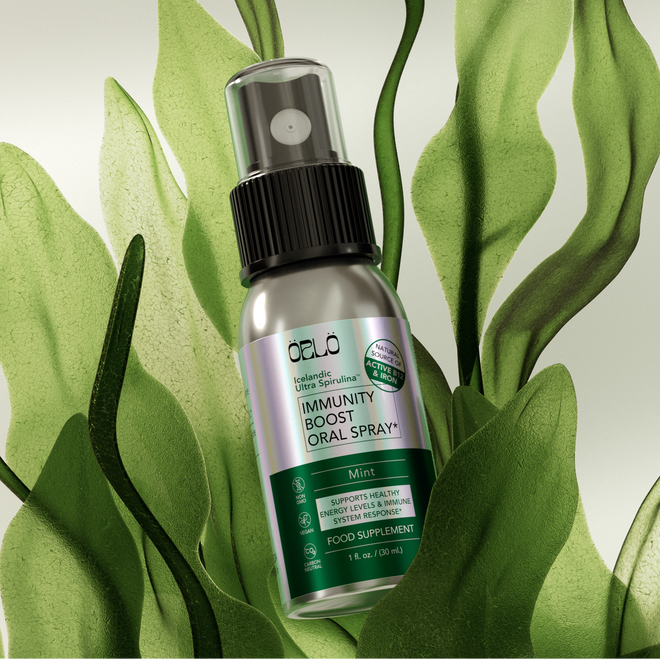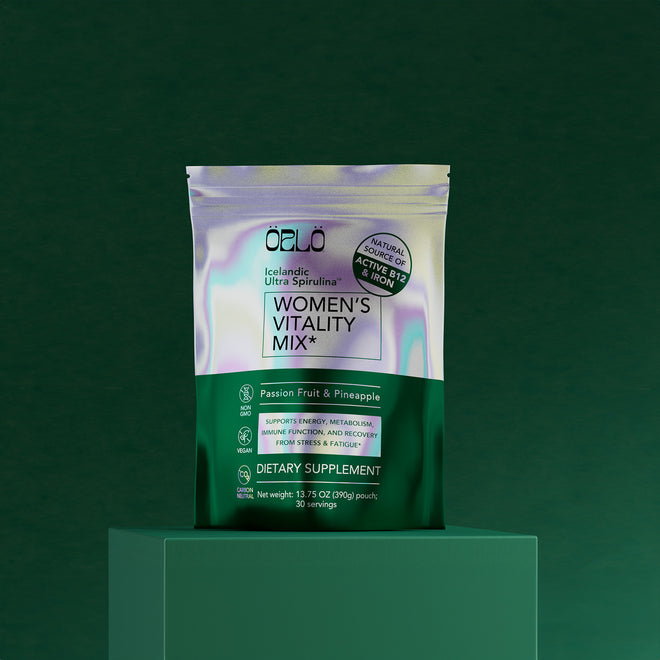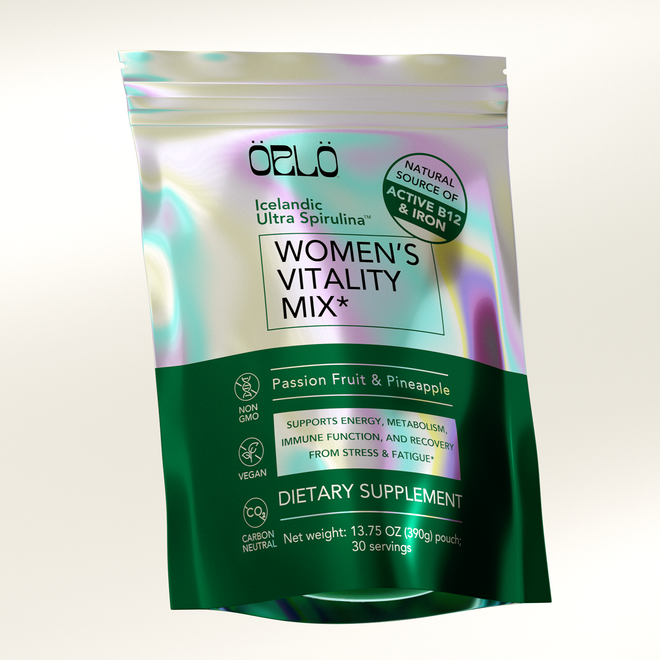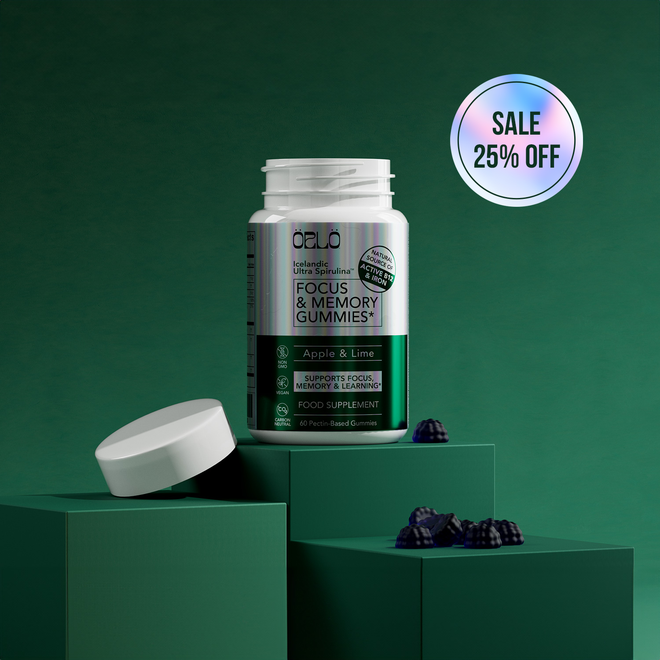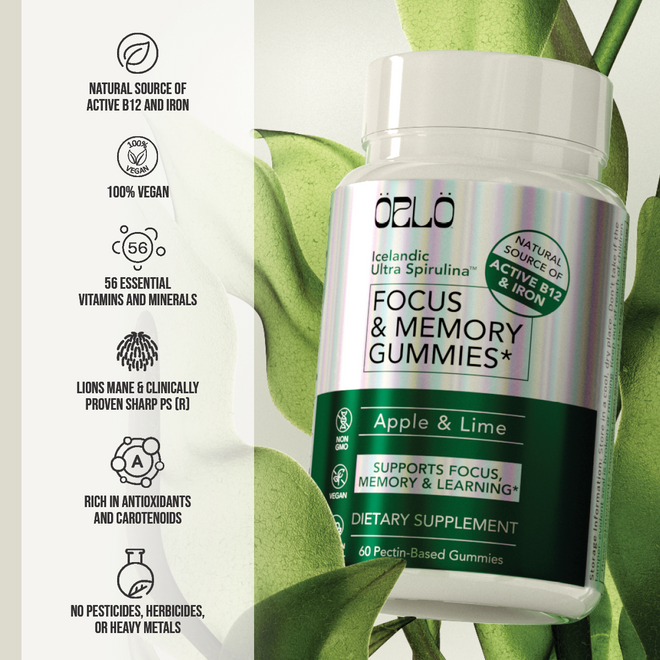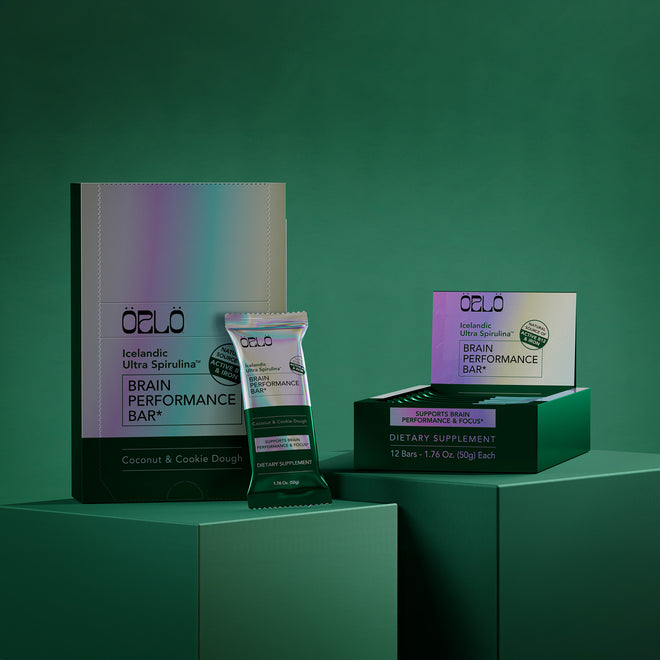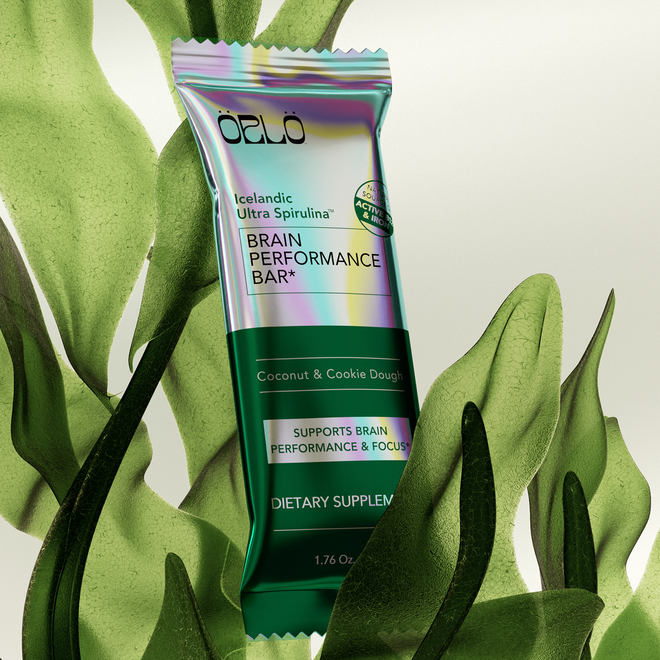25% Off - use code: HOLIDAYS
How To Set Ourselves For Long-Term Health And Confront Health Challenges With Dr. Paul Anderson
Watch the episode here
There is a reason why we continue to heed the adage “An ounce of prevention is worth a pound of cure.” In this episode, Dr. Paul Anderson is on the show opposite host Corinna Bellizzi to explore two sides of the health equation: how we can set ourselves up for long-term health and what to do when we confront a health challenge. Dr. Anderson is a recognized educator and clinician in integrative and naturopathic medicine with a focus on complex infectious, chronic and oncologic illness. He also co-authored the book, Outside the Box Cancer Therapies, with Dr. Mark Stengler. With his background and expertise, he breaks down the three pillars he considers are important to avoid getting sick. He dives deep into the poisons we consume, the need for supplementation in this day and age, and why stress eating is just as bad as consuming toxic food. Discover a more holistic way of preventing diseases. Let Dr. Anderson’s insights guide you toward a healthier life.
Key takeaways from this episode:
- The three pillars to avoid getting sick
- The poisons we consume
- Why we need supplementation and testing now more than ever
- The importance of being centered
- Listen to what your body is telling you
Guest Social Links:
Website: https://dranow.com
---
How To Set Ourselves For Long-Term Health And Confront Health Challenges With Dr. Paul Anderson
With this episode’s discussion, we're going to explore two sides of the health equation. How can we set ourselves up best for long-term health? Ultimately, when we do confront challenges, whether they are personal challenges with our health or those of our family or close friends, how do we confront them? How do we surmount them? How do we ultimately navigate those murky waters that we might confront at some point, whether it be a broken leg or a long-term illness and even a debilitating disease?
To engage in this powerful discussion, I'm honored to be joined again by Dr. Paul Anderson. Dr. Anderson is a recognized educator and clinician in Integrative and Naturopathic Medicine with a focus on complex infectious, chronic, and oncologic illnesses and cancers. In addition to his three decades of clinical experience, he served as Head of the Interventional Arm of a US NIH-funded human research trial that used IV vitamin C and other therapies in cancer patients.
He founded Advanced Medical Therapies in Seattle, Washington, a clinic that focuses on the care of patients with cancer and other chronic illnesses. He's the author of the Hay House book, Outside the Box Cancer Therapies, as well as a co-author with Jack Canfield in the anthology, Success Breakthroughs. He's a frequent speaker and writer for the medical community and has his own podcast, Medicine and Health with Dr. Paul. With that particular podcast, he shares many bite-sized episodes, less than fifteen minutes, thinking even the most complex science digestible for you and me.
 He's even done that with this latest book as well, Cancer: The Journey from Diagnosis to Empowerment, which is the book that we'll dive into a little bit. As a reminder, before we get started, this show is offered for educational and entertainment purposes only. Nothing shared should be construed as medical advice. If you have a specific health concern, connect with your healthcare provider. Perhaps that could even be Dr. Anderson himself. Dr. A, welcome to the show.
He's even done that with this latest book as well, Cancer: The Journey from Diagnosis to Empowerment, which is the book that we'll dive into a little bit. As a reminder, before we get started, this show is offered for educational and entertainment purposes only. Nothing shared should be construed as medical advice. If you have a specific health concern, connect with your healthcare provider. Perhaps that could even be Dr. Anderson himself. Dr. A, welcome to the show.
Thanks for having me.
It's lovely to have you back. When we last connected on this show, we dove into your expertise in Post-Infectious Illnesses beyond cancer and including even COVID. As they say, an ounce of prevention is worth a pound of cure. I'd like to focus that conversation on those two things. On one hand, let's discuss how we set ourselves up for a long healthy life. On the other, what do we do when we confront a real challenge? How do we set ourselves up for success? What have you seen?
You mentioned earlier the two cancer-oriented books which have a lot of crossovers to a lot of other chronic illnesses. There's something that I noticed somewhere after twenty years of working with patients with cancer and complex chronic illness. I start to look backward and say, "Is there anything in common with either people who maybe have a short trip into the chronic illness world so they do get sick other folks, but they seem to come out of it better, or people who need more intervention because they have a higher level illness such as cancer and autoimmune disease, but they seem to do better than other people in their same disease say cohort?”
What it turned out is there are three real basic things that I consider the pillars of not only doing well in a chronic illness or debilitating illness, but also you could take this before you're sick. That's the best time to do things. Prevention is better than anything, and these pillars serve you well in the avoidance of disease.
As you mentioned in the intro, disease happens to people. It’s a natural course of being a human and sometimes bad diagnoses happen, but also a lot of people are certainly able to have prevention. One of the things I thought we could do is bookends around these pillars and we could start there because it's a great place to start for prevention. We could end there in regard to, “What if I'm dealing with something chronic and long term or disturbing diagnosis like cancer? How do these apply to me then?”
Thank you so much for that bookends perspective because that fits nicely. One of the things that I loved when I first got your book was Bruce Lipton wrote the foreword. Bruce Lipton is someone who I followed for a long time. He wrote a book called The Biology of Belief. That connects nicely to how you've constructed this book because you have two different perspectives that offered a cancer patient who is diagnosed but moves into acceptance and a positive attitude almost out of the gates. Whereas the other who happens to be an MD is fighting the diagnosis and a little bit of a grump about it and leaning into the, "I know what this means. This is dire. Therefore, what good can I do about it?" type thing.
There's resistance to even the possibility of emergence from cancer, and resistance to having a positive attitude about their daily life from that point forward. That, therefore, seems to affect their outcome along the way, not only in their daily enjoyment of life but also perhaps in how they respond to treatment. The bookends you've discussed marry this all together. I hope that you'd also be able to share perspectives from your time and practice.
If there is literature that says the placebo versus nocebo effect does have some validity to it, and here's what we're finding, or there are these nutrients that a lot of people are lacking that may lead them down this road where they're more likely to develop some of these diseases, or how inflammatory concerns have become then chronic. That's my further commentary on the discussion.
I'll start with the bookends idea and we'll develop that. You mentioned Dr. Bruce Lipton writing the foreword. That was an extreme gift to me. It was wonderful that he did that. Partly, it was because our ideas, although coming from different points of view, meshed well as far as his writing, my writing, and our experience. That was wonderful.
It leads to one of the portions of these pillars I was going to talk about. To frame the bookends, let's start on the most positive side possible. Talking about cancer and chronic illness can get a little heavy and thick and all of that. It's certainly a serious business. Most of us have a time in our life hopefully when we're not ill. I don't know if people have heard this or not, but the way that illness works, whether it's cancer or immunologic problems or whatever, we all have things come up every day in our body that our immune system takes care of and we never even know it was there.
That's how the immune system is supposed to work. Prevention is the best medicine if you can do it. If you've already got an illness, we'll talk about that in the other bookend. On the preventive side, it turns out that these same big three pillars that hold our health up apply whether you're trying to stay out of a disease state and stay as healthy as possible or they apply even if you're very sick to get the best outcome you possibly can have with your illness or maybe a recovery, remission, etc.
On the preventive side, I boiled these down not so much for the public but for medical students when I teach them because they are so inundated with information that we try and break things into little pieces they can remember. I have a graphic that's a foundation of three big blocks. They're called food, muscle, and brain. They're deceptively small words for very big topics. To put a spin on it for the purposes of prevention, food not only includes of course the calories and the fuel that we eat, but it includes the cleanliness of the food.
Are we getting as clean a food as possible? We do not live in a clean world. There are lots of toxins etc. We can't avoid them all, but we can minimize them. Food and drink are one of the biggest ways for poisons into the human body. If we look at the effect of our food and the cleanliness or lack of cleanliness of the food that we take in and the liquids we take in, the toxins that we take in or minimize are huge epigenetic triggers.
We do not live in a clean world. There are lots of toxins. We can't avoid them all, but we can minimize them.
This is a big thing that Dr. Bruce Lipton talks about in his books. An epigenetic trigger is we can have good or bad genes, but our epigenetics are what turn them on or off. He and I use a common example. There are particular bad cancer genes where maybe you have a 50% to 55%, maybe even 60% probability of having certain cancers if you have those genes.
The other side of the question is what about the 40% or 45% of people who have the same genes and never get them? That's the effect of epigenetics, what turns things on or off. This is one of the reasons I start with that with food. There are many other things with the food we can talk about, but the less junk and the less toxicity we bring into our body through eating and drinking, the less epigenetic banging on our genes. We don't want to turn the bad genes on.
That's a big thing, the cleanliness of your food. There's the simple aspect of whether the caloric amount that we're getting is enough to run our body or is it too much. There are things like our macros and those are individual for people. Some people do better with more of a protein-fat carbohydrate balance in one direction or another. There's also the timing of our eating.
One of the things that we see in disease prevention but also in survival of some unfortunate things like cancer is if we simply don't eat for a while every day. Nowadays we call it intermittent fasting, but don't eat for a while. It increases people's survival with even some demanding diseases. It's about cleanliness. It's about the amount of fuel we're getting. It's about the macros. All of those things go into food. Also, there's our emotional relationship to food as well, which comes up in another one of the pillars.
This is something that patients often ask, and this fits in especially on the preventive side. Let's say I am doing my best. I'm eating as clean as I possibly can in this world with lots of toxins. I'm getting a good variety of food. Do I need to supplement the nutrition in my food? The short answer is yes. You need less if you're getting more high-density nutrition in your foods.
Here's what often we don't think about. There's data that goes back now 100 years or more in the US. For example, my parents both passed away, but they would be close to 100 years old now. When they were children, if they ate broccoli, asparagus, or any other food, the amount of nutrients that food would have for the same serving size as what I would eat now is different, and it's not going in the better direction.
The nutrients were higher back then. What's the other side of it? The amount of toxic chemicals was minuscule. Human evolution over time takes a long time. In the last hundred years, we've seen the addition of tens of thousands of toxins, many of them in our food and water supply. That's an important thing as well. That means I can look like I'm eating well and maybe I'm doing the best I can, but the micronutrients that I probably need to be supplemented in some way or another. That could be vitamins, minerals, fatty acids, amino acids, and things like that. That's a big thing. Food means all of those things including cleanliness and when we eat and when we don't eat. The middle one, I call muscle. It is the balance in our physical activity between muscle activity and fat activity.
In maintaining health or prevention, it works the same way as it does in recovery from disease. A few months ago, publications are expanding on the science of muscle activity. When your muscles work, you don't have to become a marathon runner or anything like that. You have to use your physical body a little bit.
You could be gardening.
You could walk around your house. We have people who are recovering from surgery and an extra trip to the kitchen for them is their first step. It's whatever you can do. When your muscles work, they send chemical signals out to your body to repair things. Even your muscle activity can repair neurological damage.
This is the whole concept of your muscles as an organ themselves.
They are big metabolic organs, but their metabolism is in the direction of healing, which is a really cool thing. If you become sedentary and the muscles are minimized, but there's a lot of fat content, fat metabolism is the opposite. It's not healing. It's inflammatory and it keeps you sick. Imagine on the preventive end, simply moving your body like you could garden, you could walk around your house one more time every day. It doesn't matter where you start. The other real cool thing is maybe you've had a bad number of years. You've gained some weight. Things didn't go well. You can start where you're at. If you simply use your muscles a little bit more every week or two, they'll turn on the same healing types of chemistry.
That's what I mean by muscle. You don't have to become an iron man or woman. You can do it by acting a little bit more activity. I break the brain down in two directions. One is a lot of what the latest book is about, which is the internal dialogue of what I am saying to myself about how I feel in the world and how I'm interacting. We all have stress. How I am interacting with that and all of those things. There's also the exterior world coming in. None of us live in a bubble and there's nowadays many ways for messages to come into our mind, body, heart, and all that. That may be good and healing or maybe unhealthy.
If we have this combination on the brain of pillars where the talk I'm giving myself is not so positive, not so healing, and not so focused, and then the things I'm allowing to come in through my ears and the people I'm around or all of the above are also negative, we can work our body into an unempowered state which is associated with more illness. Even if you get medical attention, there's a worse response to medical attention.
Those things are universal in my experience. It can keep you from being sick. It can keep you from getting sick sooner than you need to. Also, on the other end of the spectrum, even with cancer patients, if those things are attended to, what we tend to see is all their therapies work better. They get more mileage out of their therapies, whether a natural standard of care or some mixture. Their quality of life is certainly better.
Also, there's research that shows that even things like pain management work better when you're empowered. Many things can be positive with those, whether we're avoiding illness, being healthy and preventive, or whether we have something that's maybe not going to go away, but we want to live the best life we can with it. You could go deeper into many things in those areas, but those three areas are the places I have people start to focus.
Even things like pain management work better when you're empowered.
I'd like to dive a little bit more into this whole concept of food and drink because you said something early in that discussion that stuck out to me. You said that it was the primary way in which poisons make their way into our bodies. While you did share a clear understanding of how something broccoli, spinach, or whatever it is that we're consuming would have a different nutrient profile than it once did and you also said we have more toxins in our environment, we also are consuming foods at an increasing rapidity that our grandparents or our parents didn't eat. What do you consider the poisons that we consume when you use that term?
I prefer to use the word poison because people understand that word. Toxins are included in poisons, but toxins can be something that we think is out there somewhere. You think, “I don't live next to a coal smelting operation. I don't walk around in town with lots of car exhaust.” Certainly, those are ways to get toxic. What we sometimes miss, and you were alluding to this, is the poison that comes in through food can be on a bunch of levels. Some of it is as simple as eating too much of something I don't need. It is poisonous to me. It feeds some of that bad metabolism. The next level is literal toxic ingestion of the food.
As I mentioned, there are tens and tens of thousands of chemicals that didn't exist 75 to 100 years ago. Many of them wind up on our food, even organic food. Maybe less on it but there's still. That's because they're either applied to the foods as part of the propagation of the food or they're in the air, and then they either come out of the air through airborne activity or rain. It gets on our crops or on the stuff that the animal we eat eats.
The toxins are not just pesticides and herbicides, which are horrible, but they're everything else that's in the world. As I said, there's no clean place in the world left. That ship has sailed. We've got the self-poisoning thing and maybe I'm eating too many calories or too much of something I shouldn't eat, which could include allergens and sensitivities. We've got this layer of chemistry that might be directly applied to the food or might be there incidentally because it's in that environment.
None of those are good for us. We eat somewhere between 1 and 3 or 4 times a day usually. Every time that stuff goes in, it carries poison. There's another layer that you've mentioned a little bit, things such as modern farming and propagation. There are grains that didn't exist 40, 50, or 60 years ago. The grain products that I ate as a child are different from the ones we have now. The grain products that my parents ate as children are certainly unrecognizable now for the most part.
We look at this macro view of human nutrition. Humans have always eaten corn, rice, wheat-based products, or other grains. Yeah, but not that long ago. Generation 2 or 3, depending on your age, those food products were not even the same as they are now. We have things. There are certain chemical trade names I'm always careful about not saying, but we now have grains and other stuff that we grow that are propagated to be ready for certain types of pesticide or herbicide chemicals to be taken up into them. You can't separate that.
That's going into us. You think that's a downer to think about, but it's a whole other layer of ways to poison a human. You've got toxicity and poisoning has direct effects. It messes with your enzymes and hormones and all the stuff that makes us run correctly, but also maybe even more scary. It's that epigenetic signal we don't want from the toxin that can go in, and a nasty but quiet gene can be turned on.
That's where some disease comes from. It's complicated. There's no way to eliminate all of that. Also, a lot of times, it's such a negative thing to think about because I went and told you, the world is so toxic. You can get defeated thinking about it. There are many things you can do to minimize this. Minimizing is the thing you want to go for there.
I'll give a few examples for people so that they can center this concept in their thinking. You go to a grocery store and you look at apples. The conventional apples look bright and shiny. Part of the reason they look so shiny is because they're coated in wax so that they look as bright and shiny as they do. That could gunk up your system. It shouldn't be eaten. You don't need it. It may be inert but may also not be great for you. It may also combine with the pesticides that are sprayed on it and make it harder to wash off.
Whereas if you look at the organic apples, they don't tend to be that same glassy finish for the most part. There are certain cultivars that tend to have that glassy finish, but most of them don't. They look a little bit more like a Gala or a Braeburn, a little bit matte. There may be some luster to them, but not the same as the conventional stuff. It's easy to choose that food and go to organic and have a little bit safer of an understanding that you're not going to get all this chemical soup that your body doesn't need.
To help people understand on the wheat issue because so much of wheat is contaminated with some of these pesticides, it also makes it easier to harvest. Those two things go together to make wheat farmers want to use glyphosate. Ultimately, if you take somebody who's sensitive to wheat here, they may not be gluten-sensitive. It may just be the chemicals that are there because that person travels to Italy and finds suddenly, “I have no issue eating pasta. I don't have any of the negative response to this food here.” It's grown differently there. Wheat is grown differently there.
They don't get the same infiltration of the chemicals into their food supply that they're sensitive to. Whoever's brainchild this was to breed crops that have an inborn chemical in them that kills insects or that isn't, why did we take this thinking? Also, why did we enter the world of water-soluble chemicals like this because it gets into the water table and then it's there?
In some ways, we live in a toxic world, but we can do things to limit choosing organic where you can help. Paying attention to what you're sensitive to also helps. If you're sensitive like me to broccoli, I eat broccoli and an inflammatory state occurs. I can limit that by choosing not to consume products that contain broccoli, even in broth form. I'll be healthier. I won't have these negative responses. That's where personalized nutrition comes in. You have to listen to your body.
What I was getting to with the top layer is your personal poisons, if you will. You can have people that have inflammatory responses to anything. Even if it might be great for you, it's not good for that person.
Mine are broccoli and quinoa. Two things that all the health nuts go to.
It's supposed to be good for you. Mine are coconut and avocado. The two favorites of everyone right now.
Everyone in the fat world loves those two things.
One of them will kill me.
Don’t tell us which. Leave it a mystery.
We have to be careful. There are two connections that came up on our other bookend we were talking about as you were talking. One is certainly this level of personalized both good nutrition and also foods we should avoid. One of the connections there is that memorized saying, "Muscle activity is generally anti-inflammatory and healing. Fat metabolism is pro-inflammatory and anti-healing." It turns out that a lot of these foods have sensitivities to trigger the same inflammatory chemistry that the fat side has, which is not in line with healing. It's a huge thing there.
The other thing goes back to supplementation. I mentioned we're not getting the nutrients even though we eat the same amount of calories of food. In addition to replacing nutrients that are missing, this is one of the other things that's missed a lot of times. A lot of doctors miss this too because it doesn't seem it should be this way. That is your body is made to detoxify and get rid of a lot of junk. It can't keep up with what's going on in our world right now, but it's still made to get rid of a lot of stuff.
Those processes run on micronutrients and a number of things. If on one hand, we're getting fewer micronutrients and more toxicity, and then our poor detoxification systems are sitting there saying, "I've got more work to do but I need four times as much micronutrition as I would've 100 years ago to operate," you run out of gas in your detoxification. Your body pushes the toxins into fat cells.
Another reason why supplementing is more than just the nutrition gap that we have in modern agriculture is our detoxification systems and many other systems in our bodies have to operate using more fuel than they would've 50 or 100 years ago. A lot of times, whether it's supplementing clean fatty acids, amino, or micronutrients of the mineral and vitamin kind, those are used faster in folks. That's something that we look the same as we did 100 years ago, but our bodies' demands are a lot higher. That's another important thing to remember.
That could also be part of why we burn B vitamins quickly. We are living in pretty stressful times. Our alarms go off on our phones. We're getting disrupted all the time, traffic, whatever. People are balancing their lives. Typically, both partners are working, raising children, and confronting illnesses with aging parents. You start throwing all of these things into one. The stresses we confront are a lot. Those water-soluble vitamins we burn through quickly and even when we supplement with them, getting them in the most bioavailable form, we may have inborn insufficiencies like this MTHFR issue in our genes which impact our ability to absorb them from these more USP vitamin sources that are cheap and easy to take over the counter.
Getting those nutrients from foods or supplements that have the most bioavailable form is better but often, they cost a little bit more. Let's say it's diametrically opposed to your eating style or choices. If you're a vegan, it's hard to get enough vitamin B12 and other B vitamins as well. If you're vegan, it's also hard to get enough omega-3 because you're consuming no fish.
You can go to something like Orlo’s Algae in bioavailable form, that polar lipid form that’s up to three times better absorption than fish oil. Bioavailability is important and with Orlo, we're working to make sure that we provide nutrients in the most bioavailable forms so that people get more out of them. There are a variety of tests that people can take to measure their health and ultimately, even discover if they have some of these issues absorbing nutrients like if they have this MTHFR gene.
In my case, I have one representation of APOE4, which means I have an increased risk for Alzheimer's and mental decline later in life. It also means that I am less capable of integrating plant-sourced omega-3s into my tissues and may even have a hard time absorbing omega-3s from something like fish oil. Interpolar lipid is part of the solution. I'm able to manage my health that way.
I'm able to take a test now and then like this omega-3 index test to verify my levels of omega-3s and then make adjustments from there. Is that something that you often do in your practice with patients that you're seeing through a cancer diagnosis? Are you integrating those things? Is this something you tend to recommend mend people do, whether or not they're actively working with a physician in these ways?
Yeah. Testing is a good next step in the discussion. The first thing is that testing availability now compared to 10, 20, or 30 years ago is light-years different. There are still test platforms that are not the greatest in coming up with the right answer for particular nutrients. When it comes to things such as lipids, so the fat things, the omega, whether it's omega check, omega balance, or those things that you can do, we do use those a lot with people.
The reason is, as you mentioned, there's a lot of variation in our natural ability to absorb the food and the supplements we get. It's nice to see what's my body doing with those once it puts them in the cell membranes. I think this is what you were getting to. You can use it as a benchmark and then say, "What do I need to do to optimize that if it's not optimal?"
In preventive situations, let's say we don't have a big illness going on, the first thing I'll usually do with people is have them take a look at what's going into their body first. We can optimize not only their caloric intake, their macros, and all that but also their cleanliness and get high-quality and high-density nutrition in someone who's not otherwise ill. We might do that for 3 or 4 months and see where the changes are before we test anything unless they need to see how bad things are, which sometimes you do.
The other level though that we use a lot now is something you mentioned in my bio about some cancer research I did. It was also concurrent with that research but not about cancer. In chronic illness, I did some research on methylation defects and their effects on the chronic illness population. That was at the beginning of the nutrigenomic testing that we have nowadays. It was rudimentary back then. What we found is methyl cycle defects are much more highly represented in chronically ill people than a lot of other defects. The nice thing with those is most of them can be worked with in a way where you nutritionally can take in things that go around the defect and then it's a non-issue.
Another thing we do beyond looking at the nutrition and maybe testing levels in people with big family histories of trouble or early onset of the disease is we'll look at a nutrigenomic profile that will look at things. The famous one is MTHFR and methylation, but there are many other related things. Now, thankfully with computers and interpretation software, you don't have to be a biochemist to figure out what it all means, which is our problem originally. I'm a recovering biochemistry and pharmacology teacher. That's why I got involved in that before we had the computer software.
I'm trying to get over it. I could look at it and say, “We use code for these enzymes and we know what nutrients need to go there.” Things that we saw even way back then in the early research were as soon as we treated people with the nutrients that were the best for their bodies, they would get over a lot of the inertia holding them back from healing.
The nutrigenomic things can be useful also. Your general nutrition, there's the nutrigenomics, and then there's what we had talked about earlier. Beyond toxicities, there are these foods that aren't good for me as a person. Big-time allergy, which you usually know about, or maybe a sensitivity. Sometimes we know. We can narrow it down to when I eat broccoli when I get ill. Sometimes we need to test those things because maybe our bodies are so confused.
Those are the levels of testing usually on the nutritional end of things that I like to do, depending on where the person is. If they're already sick, or if they got a big family history of a lot of stuff, earlier is better to look into those things. Certainly, in your case now, this is something we wouldn't have been able to test not that long ago.
If you have an APOE 1 or 2 alleles there, especially in the four series associated with lots of fat metabolism issues, you can do many things that are proactive as you were mentioning so you don't develop all those problems. if I look and I see Mom, maybe Grandpa, and a couple of others all had early onset of cardiovascular problems or dementia, even if you're twenty years old, I'm going to say, “Let's look at these things.” If we start to make nutritional augments when we're twenty, this is an epigenetic signal.
If I don't turn it on all the time with the diet, that's not appropriate for me. I can keep it quiet. I don't have to go the road Grandpa went or whatever. Those things are useful and helpful. It wasn't always available in the forms there. The omega balance testing which comes in different names and flavors is quite important because the omega balance in our cells is predicate for so many other good things that can go on if it's working correctly.

I'll share this with our audience at this time too. We have some good news for anybody interested in testing your levels. Orlo Nutrition is providing a test with new subscribers to our Tested by You Program. This is a cost that we're absorbing. Each of these tests costs $50. When you subscribe to Tested by You, we give you one kit to check your baseline and then one more kit after four months of supplementation so you can see where you're at, and then make adjustments from there as necessary.
I made a shift personally to not consuming fish after being an avid fish consumer for a long time. I love fish. I love eating it, but I also like the fish that is higher on the food chain most. I don't necessarily want to get all the added toxins into my system if I can help it. I’m now in my mid-40s. I also understand that things mercury can be degenerative to your brain. I'm APOE4 now, so what do I do?
I have made the choice to shift my consumption from the sea to the algae that we produce with Orlo. After months of being on this new plan where I'm taking two soft gels of our omega-3 every day, I tested myself without consuming fish. It was a new baseline for me because I went from consuming fish a lot and supplementing to only having this. The ideal is 8% or better. I tested at 6.37%, rounded up to 6.4%, still not ideal or perfect. I therefore increase my dosage to three soft shells a day and I'm going to check again after four months.
I can walk this path to becoming more plant-based than I was before mindful yet of consuming my omega-3s, understanding I'm not getting enough from plant sources. I also have this APOE4 piece to contend with. My hope is that at the end of four months, I'll come back and say I am over that 8% threshold. I plan to share the results on this show. You guys can be with me on that journey too.
We've seen preliminary results from some of our audience. We have them as anonymized data so we never see what their names are, or anything like that. We'll be able to see too the before and after and then report on that as well. It's exciting and with $100 worth of tests with a subscription that's less than $1 a day, you're still getting a savings of 15%. If you use the code NWC5, you'll even get a bonus of an additional 5% discount, making it a full 20% off on your first order. I'll provide that as well at the close of the show. Thank you so much.
Let's go ahead and think a little bit more deeply about what we can do from this muscle-to-brain perspective. We've talked a little bit about the brain and attitude, and having more of a positive take on what your regimen might do for you, or even how that can affect things like nutrient absorption. Some scientists say that if people eat stressed, they don't get the same nutrition out of their food. Pausing, enjoying the food, and doing so can mean you get more out of it. What is your take on that?
To make things sound pretty and be reductionistic, there are these three pillars but everything affects everything else. The way that your body and nervous system are set up to take you from being active to being calm, and doing things like digesting and absorbing your food and your nutrients is elegant. It's complex. The bottom line is you can't have optimal digestion and absorption if you are also participating in what we might call the more active stressful side of life.
We all have lives and all sorts of things happen. You're at work or you're trying to eat while you're working and doing other things. Your nervous system has to choose one direction or the other. The parasympathetic part of your nervous system allows you maximum digestion and absorption of nutrients. You have to be physically centered and calm. You have to, at all possible costs, not be focusing mentally on many stressful events.
There are times when this is impossible, but what you need to remember is that it's always the total sum at the end of the day. It's not perfect every time. It’s the more I can be centered, not moving around, not driving while I'm eating, not talking, and having difficult conversations or arguments while I'm eating. The more centered I am and the more I'm thinking about enjoying being with who I'm eating with and my food and everything, the better my nervous system can turn all the wonderful digestive processes on.
That's another thing where it's like I ate this amount of food today and I was super stressed and doing all sorts of stuff that weren't good for my parasympathetic activity, and then tomorrow, I eat the same stuff, but my parasympathetic activity is fully active, I'm going to get different amounts of nutrients out of the same food. That goes back to the food is important, but also what we're doing here with our brain and our mind-body is important as a connection.
I'd often thought about the fact that we have all this research on the French paradox. I've lived in France. I did archeology digs there and I spent a good chunk of my twenties in France. What I saw was that the culture was so different. The stress that people deal with in the day-to-day is quite less and it's common to still take two-hour lunches. This is a big break in the middle of your day.
Over a two-hour lunch, you can take your time. You can order the food that you want. You can have a good conversation. You can take a walk after you've eaten, and then you can get back into your day. We've so moved away from that type of lifestyle here in the United States that it's no wonder to me that we would also both get less nutrition from the food we eat. Perhaps remain more hungry, therefore, because we're not getting the same nutrition. Therefore, we eat more even when we consume the same foods.
We tend to go to things that are edible on the go because we don't have the two hours in the middle of the day to spend in preparation and digestion of that food. They eat more vitamin K2 with their Brie cheese. They consume more polyphenols perhaps with their red wine. Those are parts of an equation that are quite different. What we see is with shifts in the culture in France in big cities, they're getting closer to our heart disease levels too. Perhaps the stress equation is part of that as well.
It's never one thing but stress eating is as bad for you as toxic food or any other thing because our bodies are not made to digest and absorb under those conditions. It's an important thing.
Stress eating is as bad for you as toxic food.
What I'm taking away from this discussion is multiple folds. One is that food in the right amounts and balance can be nourishing, but that we should avoid the poisons. The poisons can even mean overconsumption of something that triggers our system. That could be if we're eating too much on-the-go food, then maybe we're getting too many processed carbohydrates and sugars. Maybe we're getting way too much salt.
I find that I'm sensitive to salt. I don't like a lot of it. A few weeks ago, I had mussels for dinner that were salty. The next day, I woke up and my feet hurt really bad. I look up some research. I'm like, I perhaps have the underpinnings of gout here. This salty seafood mussels which is seafood but they're low in omega-3. They are not a great source of that type of nutrition. They triggered my body in a way that I didn't anticipate.
I'm now emerging from that after reducing my conception of salt in other ways and drinking a lot more water and then consuming some foods like cherries to help drop my acid levels so that the pain in my feet subsides. It was astounding how quickly that came up. Perhaps that's also genetically related, but maybe there was something to me not liking super salty foods all along, and I have some underlying thing that I should pay attention to there as well.
Pay attention to the foods you eat. Don't eat too much of certain things that may be triggering for you. See how your body responds. Get physically active, which doesn't seem like crazy talk. We all need to be a little bit more active. That's good. When we are making choices about our daily lives, we need to allow space for ourselves to keep a positive attitude and try to reduce stress, focus on eating when we're eating, and not do five different things at the same time. Work in some relaxation. I'm sure you would add restful sleep to the equation.
The things like sleep, etc. go with all of those pillars. There's a huge component of sleep that's related to our mind and our neurochemistry. There's a huge amount of appropriate and good quality sleep that's related to your muscles being active and also related to the food you're taking. Sleep is the cap at the end of the day on all those things to reset you for the next day. We're being a little reductionistic to divide them up because they all talk to each other. The better we can do in those areas, the better our body will respond no matter what's wrong with us.
Thank you so much for your time. I would like to know if you have any closing thoughts you'd to bring to our audience or if there's a question I haven't asked that you'd like to address, we could ask and answer it.
We could talk about these topics for days because there are so many facets to it. One theme that we've both gotten at, but I just want to take a moment and maybe restate it in a parasympathetic way. That is that your body will often try hard to tell you something that either you should do or you shouldn't do. When it comes to food, a lot of times, the cleaner our diet gets and the healthier we are, the quicker those messages come in. For example, if you had an extremely high toxic diet over caloric intake and all those things, you might not notice that connection to eating mussels because it would be in the mix of all the other junk that's going on.
It's good. It goes along with calming down eating and noticing what you're eating and liking it and all that, but also saying, “Every time I have these things, something's not right about it.” A lot of times, maybe do some cause and effect, remove some things and say, “I do feel better.” It can be at any level. I remember a long time ago before I was so into all these things, getting so tired on my commute home and then realizing that it was what I was eating for lunch. It'd be okay when I’m about to commute home. It's like I don't need to go to sleep, but I'm driving.
You were on the other side of that glucose point.
 I started to look and do some biofeedback by checking my blood sugar. I thought, “You're reading the wrong way.” Your body is trying to talk to you. What I'll tell patients is that our body speaks an elegant language, but it doesn't use words. It uses feelings and symptoms and shifts in the way that we feel. That could be gut things, but it could also be, “I'm more anxious. I'm more tired. I'm achy.” Listening to our body is important and we brought that up. Your body can guide you through a whole bunch of things.
I started to look and do some biofeedback by checking my blood sugar. I thought, “You're reading the wrong way.” Your body is trying to talk to you. What I'll tell patients is that our body speaks an elegant language, but it doesn't use words. It uses feelings and symptoms and shifts in the way that we feel. That could be gut things, but it could also be, “I'm more anxious. I'm more tired. I'm achy.” Listening to our body is important and we brought that up. Your body can guide you through a whole bunch of things.
The other thing is it's easy to get down and negative thinking about we do live in a toxic world and it's way more toxic than even 100 years ago. We've got these food issues and all that. We all have our own agency and there are so many things we can do to do a little bit better every day with that. Anything you do will be positive and will be helpful. Trying to do a little bit better every day, trying to change your habits, etc. can't happen overnight for most people, but everybody can do it. I would like to end on a positive note that way.
Thank you so much for that. I certainly appreciate it. The story that we've told has hopefully helped people to get a greater understanding of how they can approach their long-term healthcare, whether that be a disease or confronting or working to ratchet up and optimize our everyday health. Thank you so much for joining me.
Thank you very much.
---
To find out more about Dr. Paul Anderson, visit DrANow.com and check out his podcast on Apple podcasts or wherever you listen. It's called Medicine and Health with Dr. Paul. I want to remind everyone again. I picked up this book. We have it here, Cancer: The Journey from Diagnosis to Empowerment. If you've ever confronted cancer or have anybody in your life who has, I encourage you to pick it up and read it. It's written in story format, so you do get to dive deeply into two different perspectives of what it is like to confront a debilitating disease like that, and how you might best guide somebody who's also handling those challenges.
I did mention as well during this episode that we're running this Tested by You campaign where you can qualify to get two tests of the Omega-3 index kit. This is a third-party test. It's simple to take. It's a simple blood spot analysis. You register for the kit online. You put your little blood spot on the card, mail it in, and in ten days or less, you're going to receive your results via email. After your fourth month, you'll receive a second test. You can verify what your supplementation has done for you from baseline to after four months, and then make other adjustments from there to manage your health that you need.
Use the code NWC5 at checkout for this particular Tested by You Program and you'll get an extra 5% off at checkout. This is a $100 value for the test. It's an incredible resource. If you've ever thought about, “I need to supplement with omega-3s,” there's no reason to delay. I want to thank all of you for joining me and for this lively discussion. I hope you'll join me as I say my parting words and take a sip of my coffee. Here's to your health.
Important Links
- Outside the Box Cancer Therapies
- Success Breakthroughs
- Medicine and Health with Dr. Paul – Podcast
- Cancer: The Journey from Diagnosis to Empowerment
- Finding The Path To Recovery From Post-Infectious Illness With Dr. Paul Anderson – Past Episode
- The Biology of Belief
- Orlo’s Algae
- Tested by You Program
- DrANow.com
About Dr. Paul Anderson
 Dr. Anderson is a recognized educator and clinician in integrative and naturopathic medicine with a focus on complex infectious, chronic and oncologic illness. In addition to his three decades of clinical experience, he served as head of the interventional arm of a US-NIH funded human research trial using IV Vitamin C and other therapies in cancer patients.
Dr. Anderson is a recognized educator and clinician in integrative and naturopathic medicine with a focus on complex infectious, chronic and oncologic illness. In addition to his three decades of clinical experience, he served as head of the interventional arm of a US-NIH funded human research trial using IV Vitamin C and other therapies in cancer patients.
He founded Advanced Medical Therapies in Seattle, Washington, a clinic focusing on the care of patients with cancer and chronic diseases. He is co-author of the Hay House book “Outside the Box Cancer Therapies” with Dr. Mark Stengler as well as a co-author with Jack Canfield in the anthology “Success Breakthroughs”.
He is a frequent speaker and writer for the medical community and has his own podcast, Medicine & Health w/ Dr. Paul. With this podcast he shares many episodes that are bite-sized at less than 15 minutes – making even the most complex science digestible for you and me.
